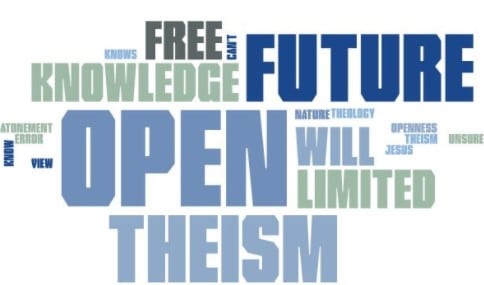A
Arial
Guest
What is Open Theism?
by Matt Slick | Dec 9, 2008 | Minor Groups & Issues, Open TheismOpen Theism, also called openness and the open view, is a theological position dealing with human free will and its relationship to God and the nature of the future. It is the teaching that God has granted to humanity free will and that in order for the free will to be truly free, the future free will choices of individuals cannot be known ahead of time by God. They hold that if God knows what we are going to choose, then how can we be truly free when it is time to make those choices – since a counter choice cannot then be made by us, because it is already “known” what we are going to do. In other words, we would not actually be able to make a contrary choice to what God “knows” we will choose thus implying that we would not then be free.

In Open Theism, the future is either knowable or not knowable. For the open theists who hold that the future is knowable by God, they maintain that God voluntarily limits His knowledge of free will choices so that they can remain truly free. Other open theists maintain that the future, being nonexistent, is not knowable, even by God. Gregory Boyd, a well-known advocate of Open Theism says,
But open theists would not say that God is weak or powerless. They say that God is capable of predicting and ordaining certain future events because He is capable of working in the world and bringing certain events to pass when the time is needed. Therefore, God could inspire the Old Testament writers to prophesy certain events, and then He could simply ensure that those events occurred at the right time.“Much of it [the future], open theists will concede, is settled ahead of time, either by God’s predestining will or by existing earthly causes, but it is not exhaustively settled ahead of time. To whatever degree the future is yet open to be decided by free agents, it is unsettled.”1
Furthermore, open theists claim that they do not deny the omniscience of God. They, like classical theologians, state that God is indeed all-knowing. But they differ in that God can only know that which is knowable and since the future has not yet happened, it can not be exhaustively known by God. Instead, God only knows the present exhaustively, including the inclinations, desires, thoughts, and hopes of all people.
In Open Theism God can make mistakes because He does not know all things that will occur in the future. According to them, God also takes risks and adapts to the free-will choices of people. They claim biblical support for their position by citing scripture where God changes His mind (Exodus 32:14), is surprised (Isaiah 5:3–7), and tests people to see what they will do (Genesis 22:12).
Finally, Open Theism tends to portray the God of orthodoxy as distant, controlling, and unyielding while promoting the God of openness as involved, adapting, loving, interacting, and caring for humanity.

